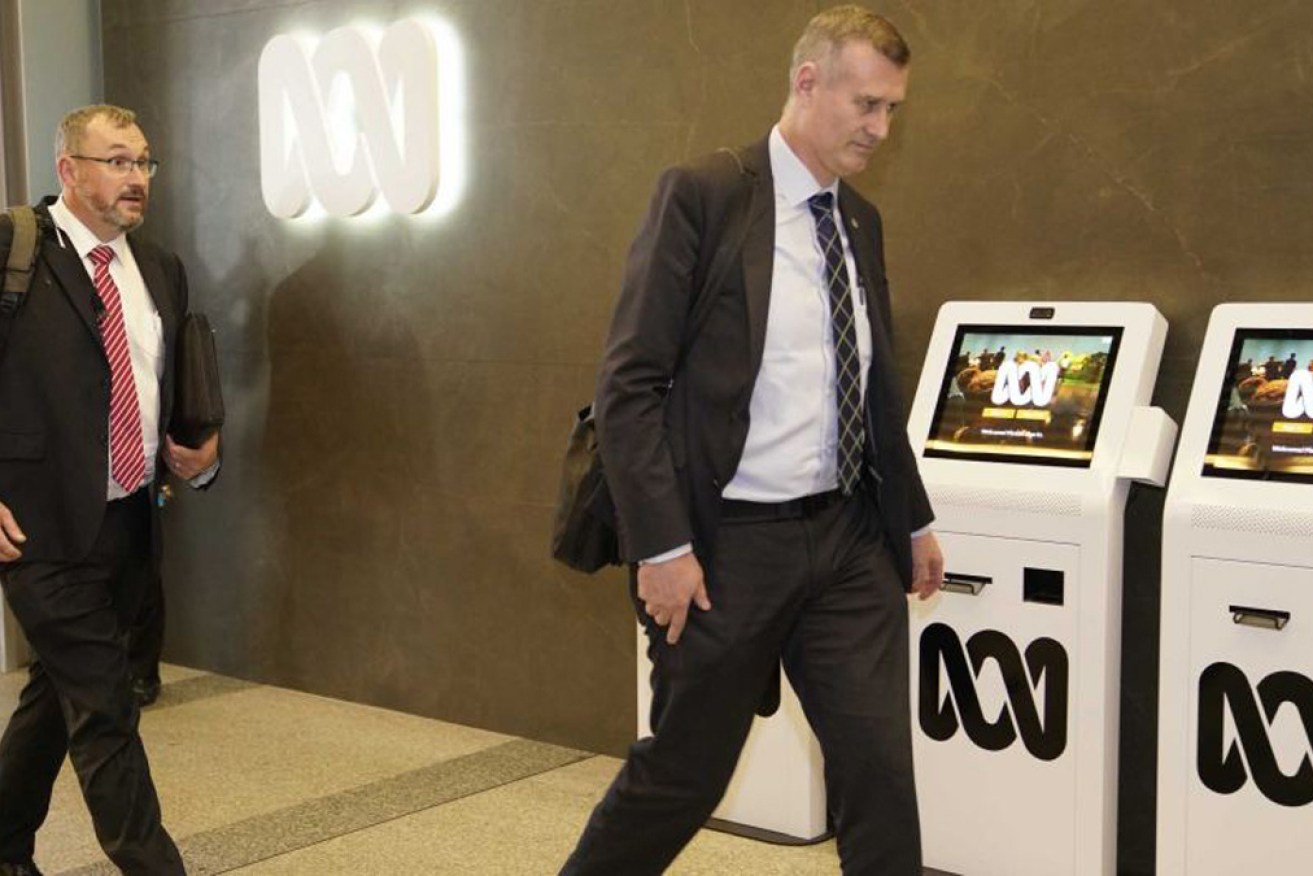Senate inquiry wants better legal protection for journalists

AFP officers entering the ABC headquarters in Ultimo in 2019 as part of an investigation into leaks. Photo: ABC News
A Senate inquiry into press freedom wants laws amended to better protect journalists and media organisations from federal police search warrants used to hunt down public interest whistleblowers.
The report, released on Wednesday, acknowledges the odour of political interference and the perception “the AFP does not always act with independence”, but stopped short of demanding an investigation.
“Although examples of perceived departmental and political interference were noted, the committee did not receive sufficient evidence to substantiate suggestions of a lack of independence in the investigation of those matters,” the report said.
The recommendations for law reform come two years after the inquiry was sparked by the Australian Federal Police raid on the home of a News Corp journalist in Canberra and at the Australian Broadcasting Corporation’s head office in Sydney.
“For many, the AFP activities highlighted ongoing and broader concerns about governments’ disregard for press freedom in Australia,” the report released by committee chair Greens senator Sarah Hanson-Young said.
The first search warrant came after a story on the surveillance capabilities of the Australian Signals Directorate, while the second was in response to the ABC’s stories on covert operations by Australia’s special forces in Afghanistan.
Media bosses acknowledged the importance of national security laws but argued that press freedom is also essential to democracy.
“That bond that we’ve always had between journalists and whistleblowers in the interests of the public to tell a story, we will do our best to maintain that. However, it is very difficult when you have police coming through your newsroom,” ABC news director Gaven Morris told the committee.
Questions were also raised about the “cavalier” handling by Home Affairs of freedom of information requests, but department secretary Michael Pezzullo said he had no intention of requesting or allocating more resources to speed it up.
A separate inquiry by parliament’s Joint Committee on Intelligence and Security last year aimed to ensure the law strikes the “right balance” between a free press and keeping Australians safe.
“No other committee of the parliament has the same insight as to where the balance should lie, and why,” government senators said in a dissenting statement.
Senators David Fawcett and Sam McMahon said the PJCIS was more thorough and its recommendations for government, all accepted in December, were more consistent.
But shadow attorney-general Mark Dreyfus said the Morrison government hadn’t done anything to act on the PJCIS report.
“Media freedom remains as under threat today as it was when police were sent to raid the homes and offices of journalists for writing stories that embarrassed the government,” Mr Dreyfus said.
The inquiry recommended a review of secrecy provisions in Commonwealth law to examine how the public interest in a free press and open and accountable government can be better balanced with protection for classified and sensitive government information.
There are specific recommendations for amendments to protect whistleblowers and journalists who make “public interest disclosures” about special intelligence operations.
The majority report also calls on the home affairs minister to consider the importance of a free press and broader public interest considerations before using any intrusive or coercive powers on journalists or media organisations.
-AAP








